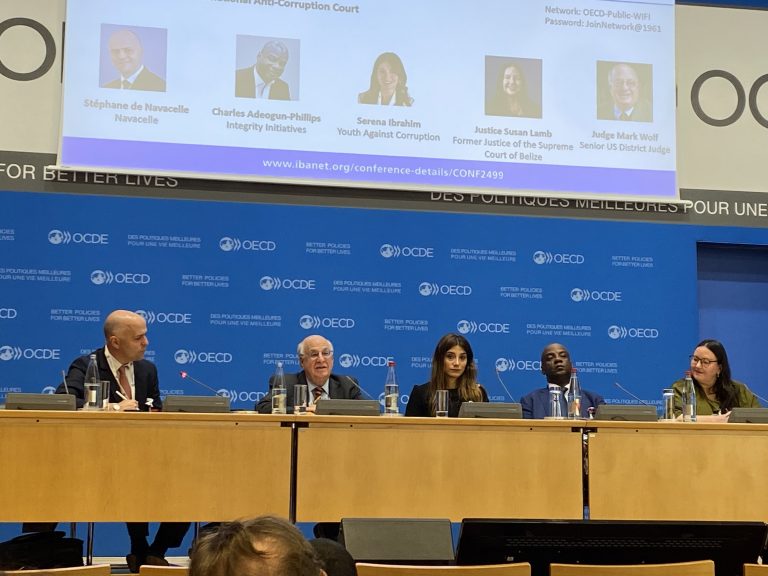The law of 27 March 2017 on the duty of care of parent companies and sourcing companies[1] introduced the obligation for limited companies employing a certain number of employees, including subsidiaries, to set up a vigilance plan (“plan de vigilance”).[2]
This plan must include reasonable duty of care measures to identify risks and prevent serious infringements of human rights and fundamental rights, the health and safety of individuals and the environment, resulting from the activities of the company and those of the companies it controls. It is part of the development of corporate social responsibility, or (“CSR”). CSR is a broad notion which includes the need for the company, and its partners, to be involved in the society in which it operates, notably by taking into account its environmental impact.[3]
Compliance with these obligations is guaranteed in the Law of 17 March 2017 through two successive mechanisms. Firstly, the company may be requested to implement its obligations by a formal notice (“mise en demeure”) mechanism, and secondly by a mechanism of injunction if the company fails to take the necessary measures after the formal notice. It should be remembered that the French Commercial Code gives the plaintiff the choice of bringing his or her action before the judge hearing the case on the merits, or before the interim relief judge (“juge des référés”). [4]
Failure to comply with duty of care obligations may give rise to liability on the part of the company breaching its obligations, which may be required to pay compensation for the damage that could have been avoided if these obligations had been fulfilled.[5]
These provisions have served as a legal basis for various environmental associations in their attempts to get major companies to update and apply their due diligence plans. These actions resulted in two decisions dated 28 February 2023 in the TotalEnergie case and a decision dated 1 June 2023 in the Suez case.[6]
These decisions rendered by the Paris Judicial Tribunal, which has exclusive jurisdiction in this area since the law of 22 December 2021,[7] are of particular interest in that they set out the legal and procedural framework for actions for breach of duty of care in environmental matters (I), while at the same time clearly establishing the limits of the jurisdiction of the interim relief judge in this area (II).
It is thus possible to think that the tone has been set for future litigation concerning the duty of vigilance.
The three decisions rendered by the Paris Judicial Tribunal set out the procedural steps to be followed in order to analyze the merits of the dispute
The first procedural clarifications concern the notions of standing to sue and standing to defend. In the rulings of 28 February 2023, the interim relief judge did not contradict the plaintiffs’ arguments concerning standing to sue, according to which it is sufficient for the plaintiff association to stipulate in its articles of association a corporate purpose linked to the fight against the harm caused by the defendant’s projects.[8]
On the other hand, in his decision of 1 June 2023, the pre-trial judge of the Paris court sided with the defendants, who argued that they lacked standing to defend, which meant that the plaintiff associations’ action was inadmissible. The vigilance plan did not specify which company had drafted it. The plaintiff associations argued that Vigie Groupe, as successor in title to Suez Groupe, was not entitled to defend the action on the basis of the estoppel principle, on the grounds that Suez Groupe had acknowledged before the pre-trial judge of the Nanterre court that it was the author of the vigilance plan. They claimed that Vigie Group was necessarily the author of the plan, since one of its managing directors had responded to their formal notice.[9] The defendant argued that it had no standing to defend, as it was not the author of the vigilance plan, which had been drawn up by Suez SA, the parent company of the Suez group.[10] Finally, the court noted that the vigilance plan in question did not mention which Suez group company had drawn it up, so that it was not possible to know whether it was drawn up by Suez Groupe or Suez SA. The court ruled that the fact that someone from Suez Groupe, now Vigie Groupe, had responded to the formal notice did not necessarily mean that it was that company that had issued it. Consequently, Vigie Group’s standing to defend was not established and the action was inadmissible.[11]
The main contribution of the decisions lies in the clarification of the requirements concerning formal notice prior to litigation (“mise en demeure”) in the area of duty of care, rather than in the questions of standing.[12]
In one of the two decisions of 28 February 2023, the interim relief judge noted that the plaintiff associations’ claims concerned a vigilance plan drawn up in 2021, whereas the formal notice, dated 2019, predated it, and that the claims were based on more than 200 new exhibits compared with those appended to the formal notice, so that there were grounds for considering that the misconducts formulated by the plaintiff associations had not been notified to the defendant by a formal notice prior to referral to the judge, resulting in the inadmissibility of the claims.[13]
Similarly, in the decision of 1 June 2023, the judge noted that the French Commercial Code does not expressly provide that the formal notice and the summons (“assignation”) must refer to the same vigilance plan. However, the court pointed out that this can be deduced from the fact that the obligations in question are based on a plan whose content is likely to evolve according to the activity of the company drawing it up, the realities on the ground and the discussions it may have with the people concerned. The court also pointed out that if the formal notice did not relate to the plan in question, the summons would have been issued without any prior discussion between the parties concerning the plan in question, in contradiction with the legislator’s intention to ensure that vigilance plans are drawn up in a spirit of consultation.
These new case law requirements greatly complicate the task of associations. Indeed, legal scholars have pointed out that, since vigilance procedures are necessarily lengthy, associations will be forced to develop and refine their demands as the due diligence plan changes. The requirement to reiterate the formal notice in the event of changes to the due diligence plan creates a situation in which the defendant company will be able to demand a new formal notice with each iteration of the plan, which is likely to delay the procedure for a long time.[14]
The Paris Judicial Tribunal clarifies the role of the interim relief judge in matters of duty of care
While the decisions of 28 February and 1 June 2023 were disappointing for many in that they did not address the merits of the dispute,[15] they have also provided some interesting clarifications as to the scope of the interim relief judge’s powers in this type of dispute.
In fact, the court underlines that the interim relief procedure (“procédure de référé”) is a judicial mechanism enabling a rapid examination of a dispute. The interim relief judge is tasked with providing an urgent response to a dispute, by ordering interim measures to preserve the rights of the parties before they are assessed by the judge on the merits.[16]
Accordingly, the judges noted that while the law provides for the possibility of an interim action to enforce compliance with duty of care obligations, it is up to the trial judge alone to decide whether the company’s alleged misconducts are well-founded, or whether it has provided proof of compliance with its duty of care obligations. The interim relief judge, on the other hand, is only competent to issue an injunction when the company subject to the vigilance regime has not drawn up a vigilance plan, or when the brief content of the sections leads to the non-existence of the plan, or when a manifest unlawfulness is characterized with the obviousness required in interim proceedings.[17] It is therefore important to understand that the bulk of future litigation is likely to take place before the judge on the merits, who alone is competent to examine the case in all its complexity.











